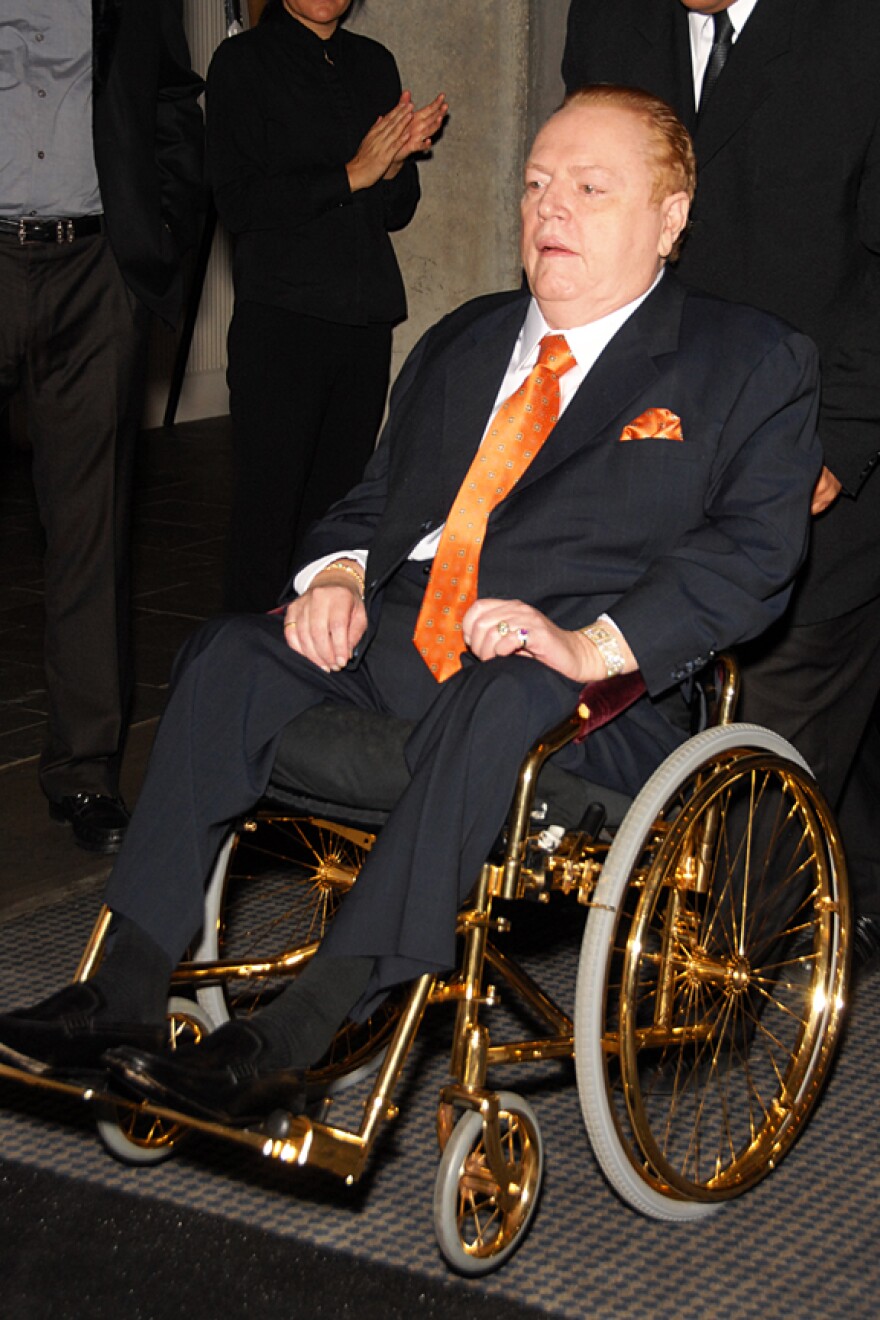Updated April 7, 2015 with court ruling allowing Flynt to intervene.
A federal appeals court has given Hustler publisher Larry Flynt the right to ask that certain records in two court cases challenging Missouri's execution process be unsealed.
The unsigned opinion issued Tuesday by a panel of the 8th Circuit does not make the documents public. It simply gives Flynt the right to argue that they should not be kept secret.
"This is a big foot in the door for transparency," said Tony Rothert, the legal director of the ACLU of Missouri, which represented Flynt in court. "We can’t have transparency if we can’t even ask for court records to be unsealed, and it’s now clear that Mr Flynt and other members of the media can ask the court to unseal records."
The opinion states that even though Flynt had the right to file a separate lawsuit seeking the documents in question, "for reasons of judicial efficiency Rule 24(b) intervention in such instances may often be preferable to the third party filing a separate action."
Flynt first sought permission to intervene in the case in 2013, the year Joseph Paul Franklin was executed -- a sentence Flynt opposed. Franklin had left Flynt paralyzed after a 1978 shooting.
A spokesman for Attorney General Chris Koster said the office is reviewing the opinion.
Our original story
The publisher of Hustler Magazine is asking a federal appeals court to allow him to get records filed as part of a legal challenge to Missouri's execution protocol.
In 2012, 21 death row inmates filed a lawsuit alleging that Missouri's use of propofol in its executions violated the U.S. Constitution's Eighth amendment protections against cruel and unusual punishment. One of those inmates was Joseph Paul Franklin, who had shot and paralyzed Larry Flynt in 1978, and had been sentenced to die in Missouri for unrelated crimes. Many of the records in the case have been filed under seal.
In early November 2013, Flynt, who opposed Franklin's execution, sought permission from federal judge Nanette Laughrey to intervene in the case and ask that the sealed records be made public. Franklin was executed on Nov. 19; Flynt's request was rejected the next day. A second request that was also rejected was the subject of Wednesday's hearing.
The question in front of federal judges William Riley, Arlen Beam and Steven Colloton is generally this: should Flynt be allowed to intervene in a case when he's only generally interested in the subject, but has no common interest with any of the inmates?
Absolutely, said Tony Rothert, the legal director of the American Civil Liberties Union of Missouri, who represented Flynt in court.
"It could be any publisher, it could be any media outlet or any member of the public that's trying to get access to secret court records," Rothert said. "This case is about whether the media or the public have a right to ask a court to unseal records that the court has for some reason decided to keep secret."
Fourteen media organizations submitted court briefs supporting Flynt's position. During oral arguments, Judge Beam asked their attorney, Benjamin Lipman, if Lipman was throwing around the First Amendment right of free speech with "reckless abandon."
"I think I was just applying the First Amendment as the Supreme Court has said it should be applied," Lipman said afterward.
Two pending state cases also challenge the secrecy surrounding Missouri executions. Both are scheduled for oral arguments in front of Cole County judge John Beetum next week. St. Louis Public Radio reporter Chris McDaniel is a party to one of those lawsuits.
Assistant attorney general Greg Goodwin argued on behalf of the state that Flynt could file his own lawsuit seeking the records, and therefore did not need to intervene. The publisher, Goodwin said, is raising a procedural question that isn't connected to the underlying Eighth Amendment case.
Flynt's efforts do not affect that underlying case. The full 8th Circuit heard arguments on the case in September.
Follow Rachel Lippmann on Twitter: @rlippmann





